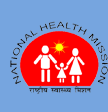In Goa the universal immunization programme was introduced in the year 1985-86 as part of national health policy.
The provision of a primary series of vaccine in the first year of life is the corner stone of the primary health care efforts to prevent childhood mortality and morbidity occurring due to the vaccine preventable diseases such as tuberculosis, diphtheria, pertussis, tetanus, poliomyletis, hepatisis B, haemophilus influenza B, measles, mumps, rubella, Japanese Encephalitis.
The vaccination commences during the antenatal period when the pregnant women is given 2 doses of tetanus toxide to develop full immunity against the disease. These doses are given 1 month apart and will benefit not only the mother but also her newborn from developing neonatal tetanus.
Most of the vaccines are supplied by the GOI, however Pentavalent vaccine containing antigens against five diseases i.e diphtheria, pertusis, tetanus, hepatisis B and HIB has been introduced by the State Government in the entire state wherein the infant is immunized with three doses at 6,10 & 14 weeks in lieu of DPT and Hep-B. Besides MMR vaccine i.e. a vaccine containing antigens against measles, mumps & rubella has also been introduced along with rubella vaccine, by the state.

All the vaccines are being maintained at the proper temperature using the cold chain equipment provided by the GOI.
At the headquarters the vaccines are kept in the walk-in-cooler whereas at the periphery it is stored in specially provided ice-lined refrigerators.
Immunization sessions are conducted in all the peripheral centres including the sub centres on fixed days. District Hospital, the Community Health Centres and most of the Primary Health Centres are conducting sessions twice a week whereas the smaller PHCs having sessions once a week. Sub centres conduct the sessions once or twice a month depending on the number of beneficiaries.
Goa being a tourist destination has a considerable migrant population hence keeping this in mind increased efforts are being made to reach out to this section of society. Outreach sessions are specially conducted in these areas wherein the children from the slums, construction sites and other difficult to reach areas are provided the immunization services.
It is to be noted that a fully immunized child is one who have received all the vaccine doses up to the age of 1 year. As per the recently conducted Coverage Evaluation Survey (CES), Goa has been doing remarkably well with a total coverage of 87.9% the highest in the country as per the chart shown below:
ADVERSE EVENT FOLLOWING IMMUNIZATION
All precautions are being strictly followed as per the guidelines of the GOI to make Immunization safe and effective. Monitoring and surveillance is being undertaken by experienced health professionals. A state level committee has been constituted to monitor any untoward incident that may occur during the immunization session.
It is to be noted that minor side effects such as mild fever, pain are observed after an injectable vaccine for which the vaccinator provides the proper advice to the mother. However, if any adverse reaction is noted, then thorough investigation is done.
POLIO ERADICATION
Goa has not reported a single case of polio since 1998, the last one confirmed in Salcete. Concerted efforts are being made by the GOI and all the states of the country along with WHO to eradicate polio.
The Intensive Pulse Polio Immunization rounds are being conducted annually in the state since 1995. Goa is also contributing very effectively towards the success of this activity. This year the first round of Pulse Polio Immunization was held on 19th February 2012, wherein 1, 23,410 children (97%) of the total estimated 1, 27,089 children under 5 years have received polio drops at 614 polio booths in the State.
House to house mopping up has been undertaken to administer polio drops for those children who missed on 19th February, 2012. After the house to house activity in all 1,30,387 children have received the benefit of the precious 2 drops of polio vaccine.
ACUTE FLACCID PARALYSIS CASES (AFP)
Strict vigilance needs to be maintained to prevent the occurrence of a case of polio in the state. For this any child below 15 years complaining of any sudden weakness of the extremities, floppiness in any part of the body and even a facial palsy is called Acute Flaccid Paralysis (AFP cases) needs to be investigated thoroughly to rule out polio. 2 samples of stool are collected 24 hrs apart in bottles especially supplied for this purpose and dispatched to Enterovirus Research Centre, Haffkin Institute Premises. Acharya Donde Marg Parel, Mumbai for laboratory examination


